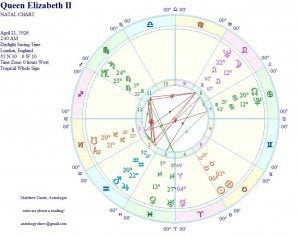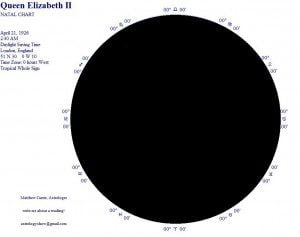Astrology is a complex field — as complex as the human hearts and events that it concerns itself with. What I practice is called “Western Astrology” (as opposed to Vedic or Chinese or Mesoamerican) and it is so full of various techniques that, quite frankly, I doubt that many astrologers are familiar with or use all of them. Properly used, I’ve seen asteroids can add a great deal of psychological depth to a reading.
I have a strong aversion to using the asteroids, and I’ll tell you why. But first: if you are a fan of the asteroids and they work for you, bless you and namaste, et cetera. In order to avoid you becoming annoyed with me, you may want to instead watch this video of a woman channelling a dead squirrel doing a reading for a couple of opossums. Have fun and come back next time!
Okay. Are all the big asteroid fans out of the room? Great, I’ll continue. I hate the thought of offending anyone. And for the record? When I say “asteroids,” I include Chiron (which I admit has its uses), and the so-called Trans-Neptunian Objects (TNOs): that gaggle of Pluto-ish-sized objects like Quaoar and Sedna and Orcus and so on.
I have four objections to lending much credence to the asteroids in astrology. Three of them are largely philosophical, and one of them is purely practical. First, let’s look at the philosophical reasons.
1) Is this really useful?
As astrologers have been doing for a long time now, I can do a complete reading covering all the important factors using just the nine regular planets (yeah, Pluto IS a planet, shut up!) and the classic techniques and aspects. In fact, you can do a pretty decent reading without Uranus Neptune and Pluto… ask any traditional Vedic astrologer. What’s more, usually I go by traditional rulerships (which ignored Uranus, Neptune and Pluto as House or Sign rulers), and if you’ve spent enough time reading my work (or buying me drinks) you’ll know I’m a huge fan of another “ancient astrology” notion, Whole Sign Houses.
So from my perspective, throwing in Chiron, Ceres, Pallas, Juno, Vesta, Eris, and so on can add layers of meaning, but as far as obvious predictive and observable results go, they’re more psychological than practical. As I sometimes tell my clients: “it’s my job to tell you when you’ll get hit by a truck. You can figure out how you feel about it.”*
2) Asteroids are for girls!
The use of asteroids in astrology really got up and running in the 1970s and 1980s, even though the first asteroid discovered, Ceres, was found on January 1, 1801 (which I admit sounds significant). Chiron is associated with things like “holistic processes” and “psychotherapy” which were catching the public’s attention at the time, even though they had always existed in one form or another.
The four “biggest” asteroids (and those that get the most attention from astrologers) are Ceres, Pallas, Juno, and Vesta. You may have noticed that all the planets (except Venus) are named after males and that the Big Four asteroids are all named after female deities. That’s great, don’t get me wrong, but at the time many astrologers started using those asteroids because of their allegedly “feminine” nature.
Okay, so yes, the qualities they represent are traditionally considered “feminine.” But anyone who thinks that things like “intellect” or “aggression” or “structure” (Mercury, Mars and Saturn respectively) are primarily the domain of men needs to meet more women. The notion that some human qualities are specifically more “masculine” than “feminine” and that women somehow need their own planets to compensate always stuck me as an underestimation of women and their potential. Likewise, there is no reason men cannot partake of nurturing, wisdom, marriage, and self-sacrificial dedication (Ceres, Pallas, Juno, Vesta).
Besides: The Moon, Jupiter, and Neptune cover those qualities already, thank you very much.
3) Precedent
The moment Pluto was discovered, astrologers didn’t fall all over themselves saying “Pluto represents death and transformation!” without doing some research and seeing how it actually works first. Yes, that’s kind of what the ancient god stood for, sort of… but it took a lot of research to determine that. Besides, the ancient story of Uranus has almost nothing to do with the modern astrological interpretation of that planet: which, given that Uranus rules rebellion and originality and general freakishness, makes perfect sense if you think about it.
Also: the TNO Makemake is from the mythos of Rapa Nui, about which we know very little, so how would you base an interpretation based on his mythology anyway? “Orcus” is simply another name for Pluto, and really… isn’t one of those enough already?
4) Practicality
Finally, this is the best (to me) reason to not pay too much attention to asteroids. Here is the birth chart for Queen Elizabeth the Second, using just the traditional planets and angles. Hard enough to read, isn’t it?
Now, here’s the same chart with the location at her time of birth of every known asteroid out there — around 100 thousand of them out of an estimated 150 million
Any questions?
BONUS ROUND: There is an asteroid named Lucifer. Want to prove that someone you dislike is actually evil? Find Lucifer in their chat, and keep throwing in other asteroids making aspects to it until you’ve made your case!







Good on you Matthew. Yep. Since all the real femme qualities have been subsumed by our Yang-brain interpretations, we have forgotten that the feminine can be/is partly... restrictive, vague, vindictive, seductive and poisonous.
We all have our crosses to bear and our secrets to bury! One of the biggest ones is that men are tyrants. The cruelty of feminine rejection is a devastating force and yet we continue to attribute "othering" to the masculine. Either sex can use and abuse Yin qualities. I am still playing catch-up on the definitions.
Asteroids are an easy out for denying that we have mixed our metaphors, by design or by trend.
And I mean Yang-brain in a good way, because every one has two brains in their heads and one in their heart. I am a Trinitarian. In my many tours around the sun, I have received more whole hearted generosity given from men than I dared to admit in my feminist days.
Just saying. I love dick!
Just for the record: I'm an asteroid fan and not in the least bit offended 🙂 thing is, I've realised that it's impossible to read any chart without omitting some of the available information - even if one ignores minor planets altogether. There's just too much of it, so at some point we have to specialise or be overwhelmed. Your work is always well-crafted, and fun to read just as it is.